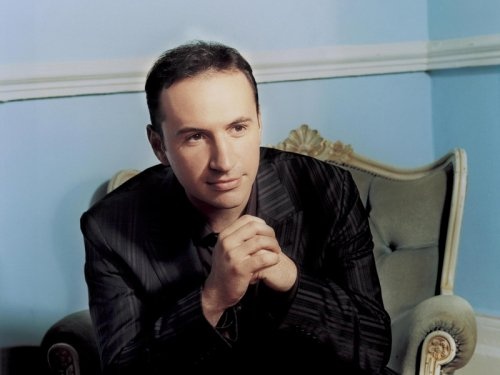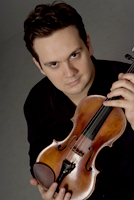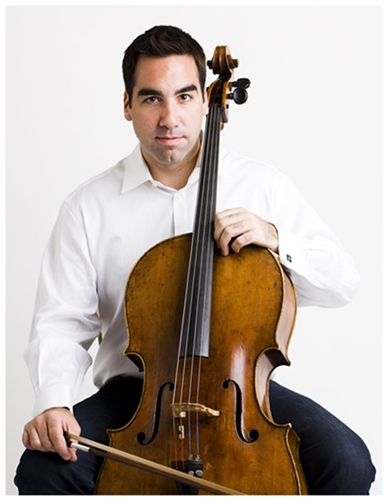Trpčeski and colleagues deliver shattering Shostakovich at Mandel Hall

The three Russian piano trios presented Friday night at Mandel Hall may have spanned just 62 years but made for a striking journey through the course of the nation and its music.
It helped that the University of Chicago Presents program—also presented as part of the ongoing Soviet Arts Experience festival—received such remarkable, intensely committed performances. The gifted Macedonian pianist Simon Trpčeski was the headliner but with equally fiery playing by compatriot, violinist Gjorgji Dimcevski, and Kenneth Olsen, assistant principal cello of the CSO, this was an extraordinary, often riveting evening.
Rachmaninoff’s early Trio elegiaque does not possess the stature of the two other works on the program but with Trpčeski—one of our leading Rachmaninoff pianists—at the helm, one is unlikely to hear better advocacy.
The Trio in G minor was not meant as a musical memorial—though, confusingly, Rachmaninoff’s second, identically titled trio was written as a specific homage to Tchaikovsky upon the older composer’s death.
Yet here too there are clear thematic links to Tchakovsky’s own Trio, in the melodic contour of Rachmanioff’s opening theme and the overall somber atmosphere. At times one wanted a more ample sound from Dimcevski’s violin to match the more ripely Russian sonority of his colleagues, but the three men provided a deeply felt performance with Trpčeski, in particular, finding surprising depth in this student work.
While Tchaikovsky’s Piano Trio was written to honor his colleague, the departed pianist and teacher Nikolai Rubinstein, Shostakovich’s Piano Trio No 2 is a broader lament for the victims of World War II.

Trpčeski, Dimcevski and Olsen delivered a shattering performance of this anguished 1944 score. Rarely will one hear the unsettling effects so harrowingly rendered as with the eerie, high muted cello notes that begin the work or the col legno bow taps rattling like dry bones.
The intention of the composer to honor Jewish victims of the Nazis is manifest in the pungent klezmer-like folk element. The Allegretto—a virtual dance of death—was put across with full force and knife-like accents, and equally compelling was the bleak introspection and concentrated intensity of the playing in the passacaglia. A haunting and memorable performance.
Tchaikovsky’s Trio in A minor received a more openly virtuosic approach befitting its bravura writing for all three players, with the musicians frequently smiling at each other as they tossed phrases back and forth in the extended set of variations that concludes the work.
Yet the valedictory expression was not slighted either as in the dirge-like opening section and its return at the coda as the music slowly ebbs away to silence, done here with great sensitivity. The dimming of the stage lights to darkness was an unnecessary bit of theatrical stage management, however, with the eloquent and expressive playing of Trpčeski, Dimcevski and Olsen speaking well enough by itself.
Posted in Performances





